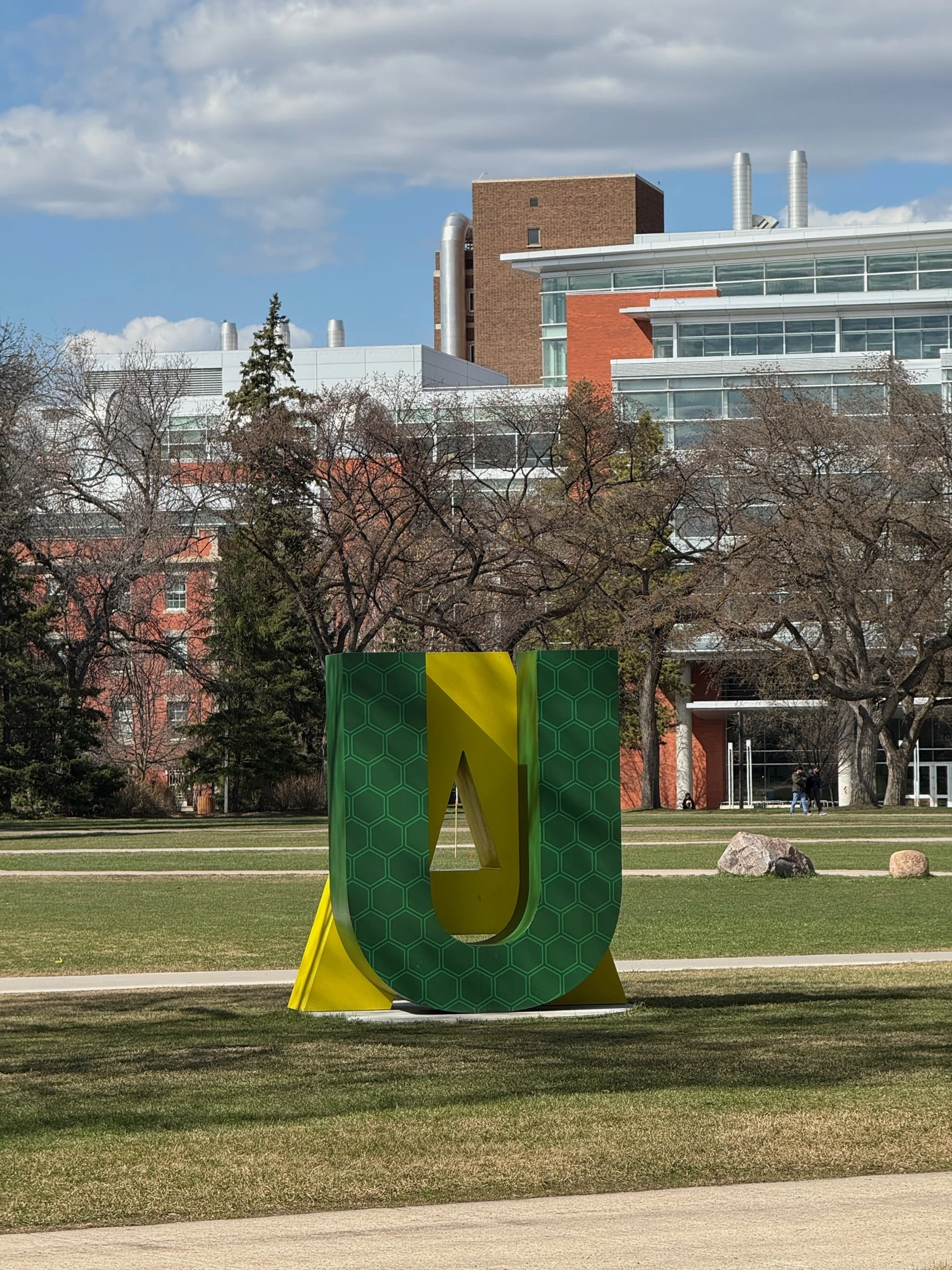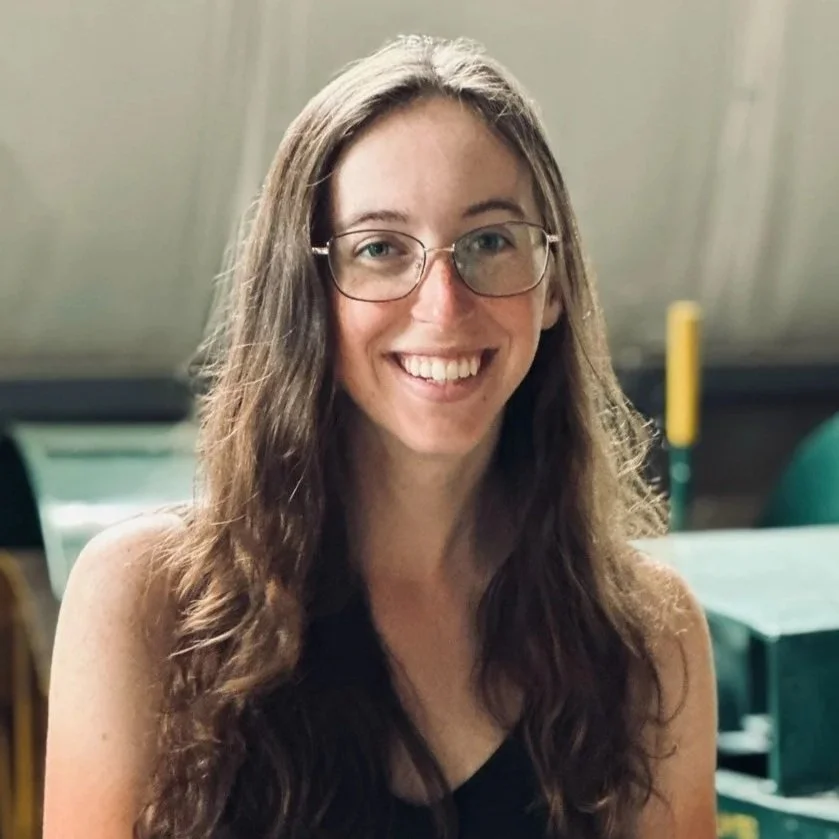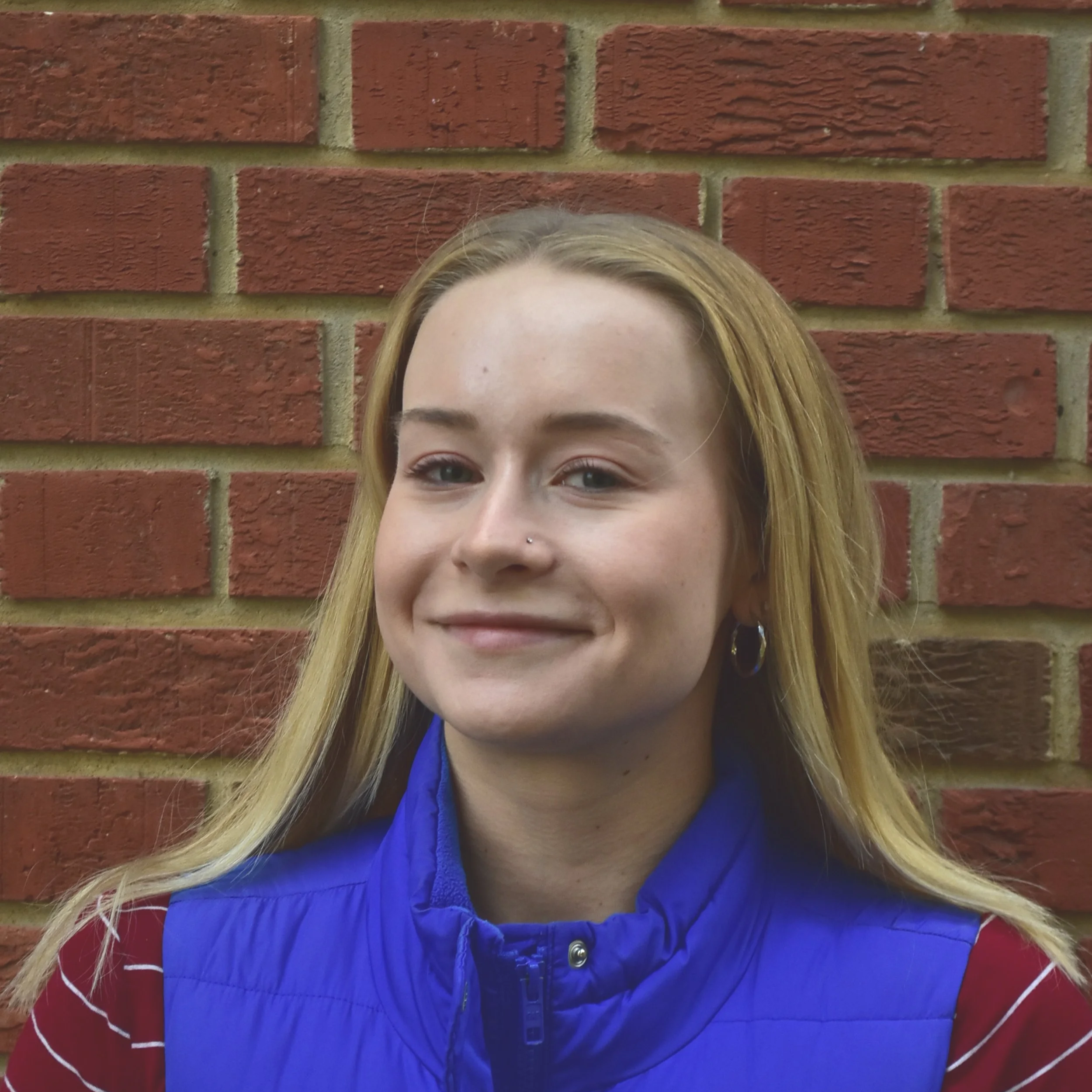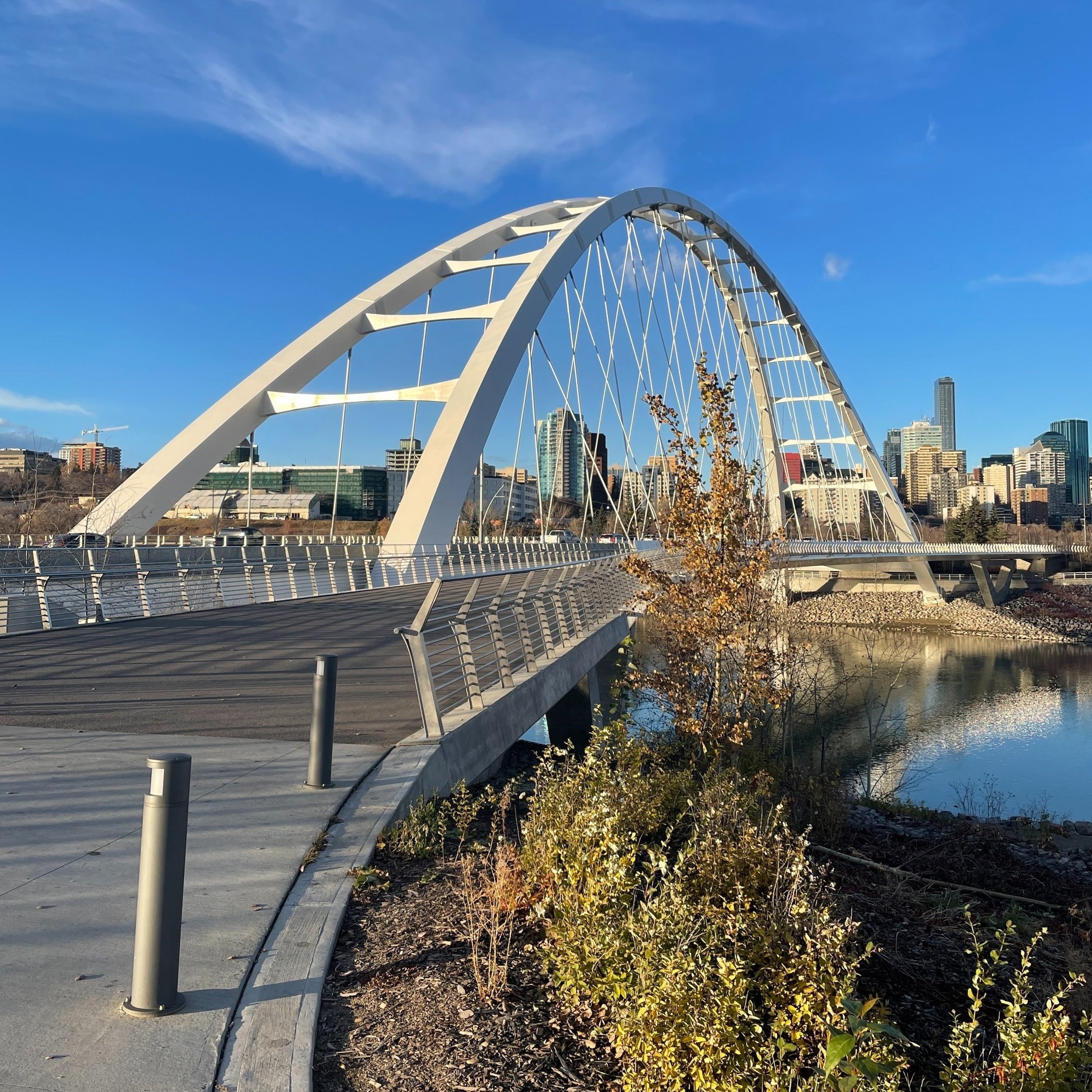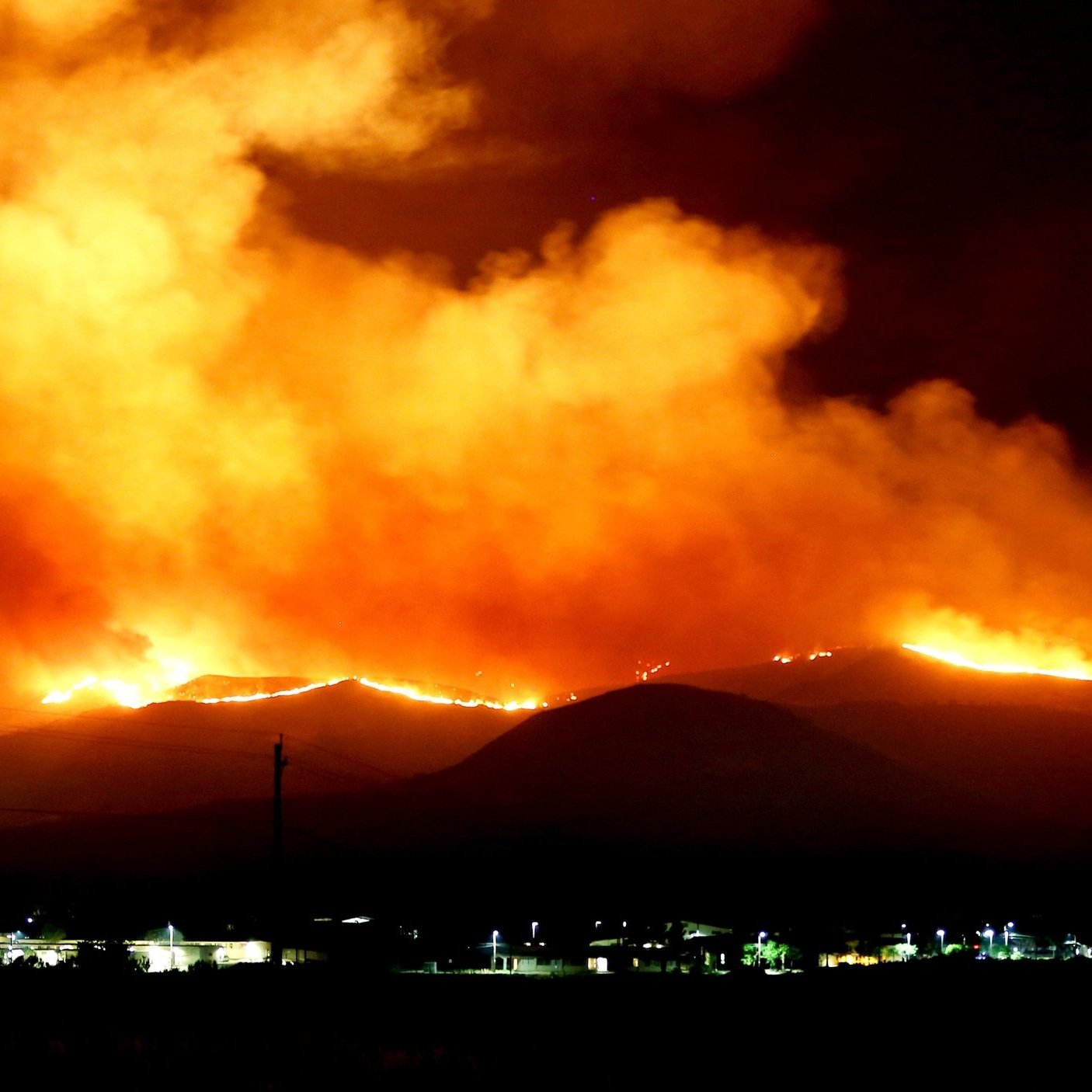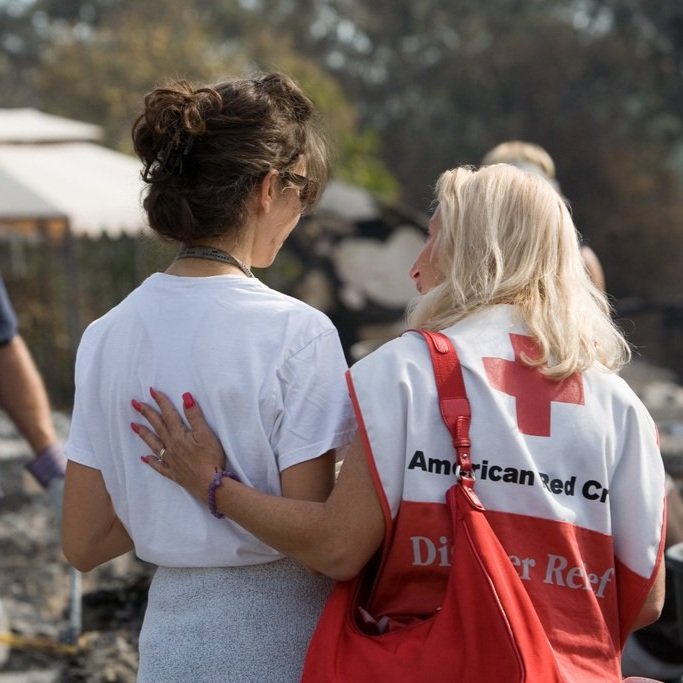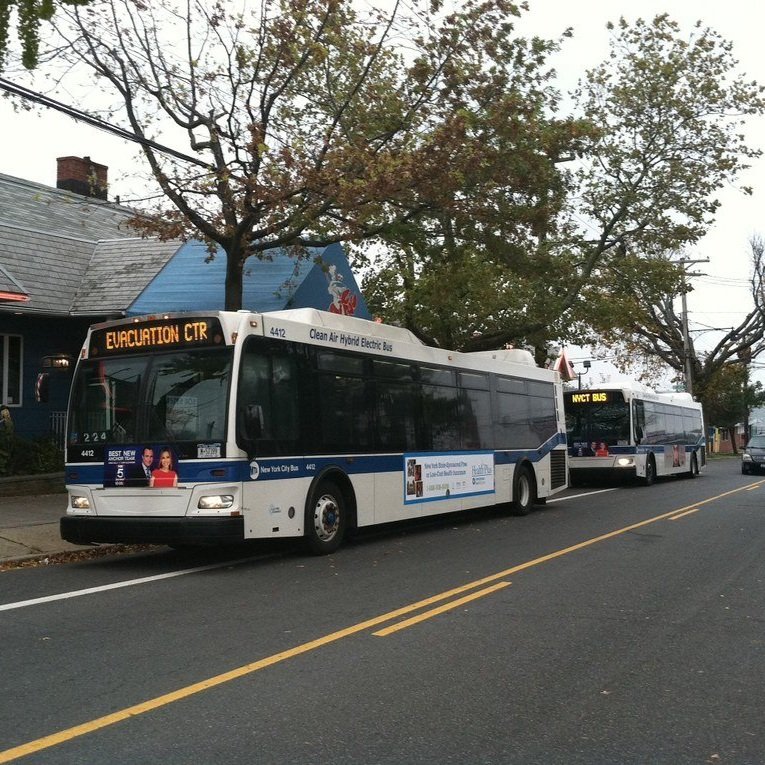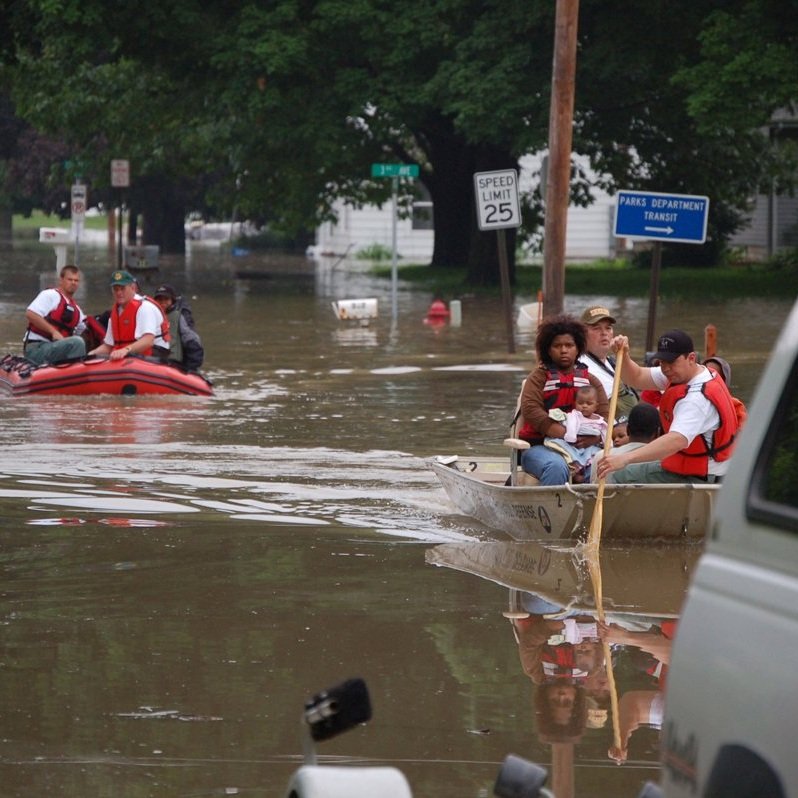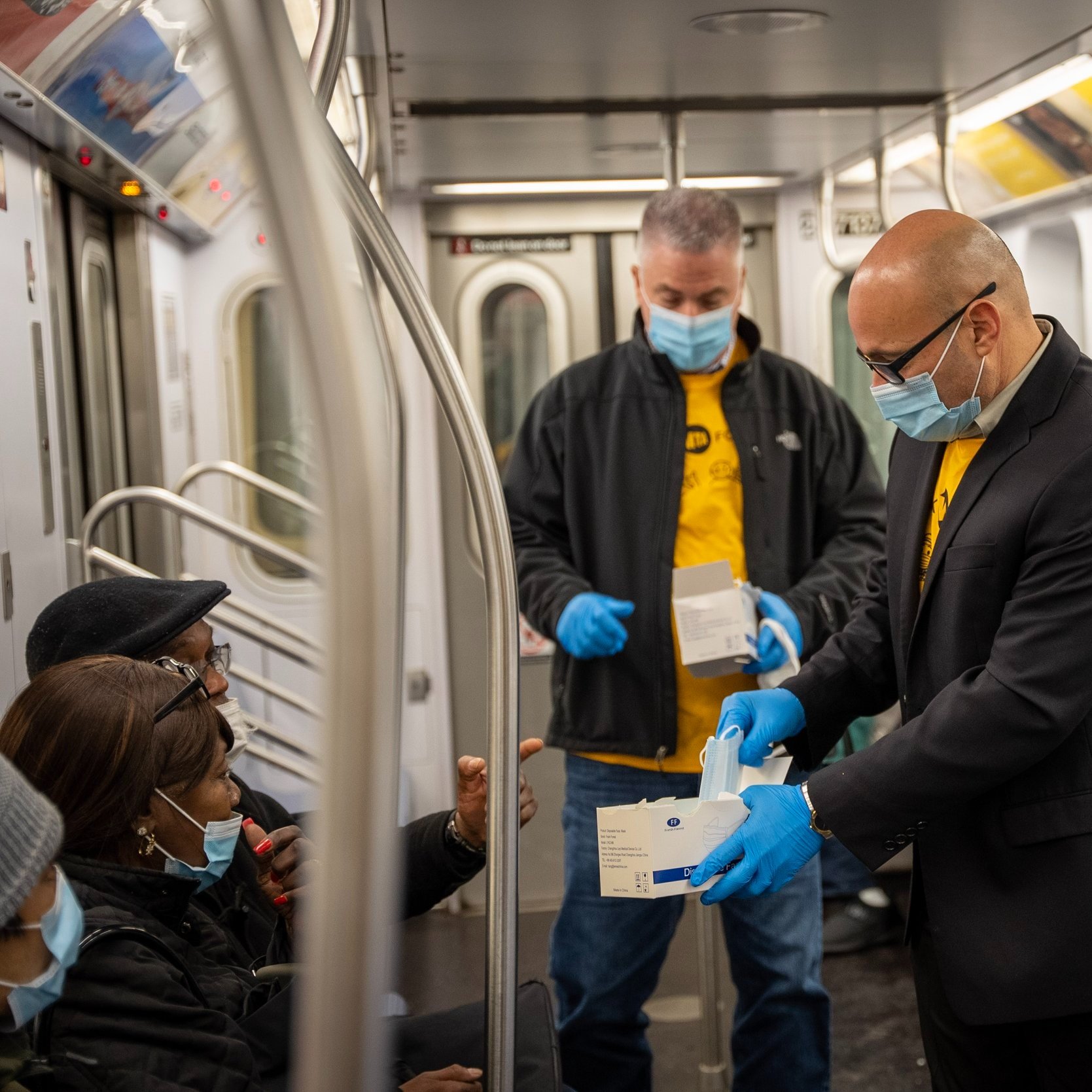About
The RESUME Group is a collaborative collective of researchers and students at the University of Alberta working to build more resilient and sustainable transportation systems in Canada and beyond. To tackle both the causes and effects of climate change, the Group employs a mixed-method research approach and brings together diverse fields of engineering, social science, and public policy to guide governments and practitioners in decision-making, planning, and preparedness. A primary focus of the Group is informing effective evacuation plans, operations, and strategies in Canada, the United States, and globally. Beyond its primary research objectives, the RESUME Group also strives to identify and develop equitable pathways and goals in transportation research, practice, education, and training. The Group is committed to compassionate research, collaboration, and mentorship that promotes diversity and inclusion at our university and in the communities we serve.
Source and Design Above and Logo: Shawn Terasaki
Photos Sources: Stephen Wong
People
Dr. Stephen Wong
Assistant Professor at the University of Alberta
Dr. Stephen Wong is an Assistant Professor in the Department of Civil and Environmental at the University of Alberta and a professional engineer (P.Eng.) in Canada. Stephen’s research focuses on the intersection of evacuations, decision-making, and shared mobility and works to create more resilient, environmentally friendly, and equitable transportation systems. His dissertation research developed empirically driven and equitable evacuation and resilience strategies for governmental agencies to prepare for, respond to, and recover from disasters.
Stephen has also conducted research on smart charging programs for electric vehicles, automated vehicle policymaking in the United States, mobility on demand (MOD) ridehailing and microtransit pilots, and scenario planning-based recovery of public transit and shared mobility from COVID-19. He was a National Science Foundation (NSF) Graduate Research Fellow, an Eno Center for Transportation Fellow, and a Dwight D. Eisenhower Transportation Fellow. Stephen received his Ph.D. in Transportation Engineering from UC Berkeley in December 2020. He received his M.S. in Civil and Environmental Engineering at UC Berkeley (2016) and a B.S. in Civil Engineering with a second major in Sociology from Johns Hopkins University (2015).
Dr. Mohamad Khalil
Postdoctoral Fellow at the University of Alberta
Dr. Mohamad Ali Khalil earned his Ph.D. in Transportation Engineering from the University of British Columbia (UBC) in 2025. His research interests include transportation and urban planning with an emphasis on the use of machine learning and agent-based modelling. In addition, Dr. Khalil enjoys working on interdisciplinary research, where he has previously worked on research related to traffic noise prediction and the use of remote sensing for mobility analysis. He has a strong publication record of 38 total publications and an h-index of 14. He is also highly motivated to apply his expertise on research related to public transportation, resilience, accessibility, and public health, among others.
Thayanne Gabryelle Medeiros Ciríaco
Ph.D. Student at the University of Alberta
Thayanne Gabryelle Medeiros Ciríaco is a Ph.D. student in Civil and Environmental Engineering (Transportation Engineering) at the University of Alberta. She received her M.Sc. in Civil and Environmental Engineering at the University of Alberta under the supervision of Dr. Stephen Wong. Her thesis focused on resilience hubs, travel behaviour to hubs, and equitable design of hubs. She received her B.S. in Civil Engineering from Universidade Federal de Alagoas - UFAL (Federal University of Alagoas) in Brazil. Her undergraduate research was focused on using optimization to allocate resources in the maintenance of road pavements to achieve long-term cost and effectiveness benefits. During her B.S. degree in Civil Engineering, she published two papers in the Annals of XXXI ANPET and one paper in the XI CONECTE Congress, the latter of which she won the prize of Best Work in the Roads and Transportation category. She was also a Teaching Assistant of Roads course and Pavement course in UFAL’s Engineering program. With the RESUME Group during her Ph.D., Thayanne will be continuing to research evacuations, human behaviour in disasters, and resilience hubs.
Anyu Huang
Ph.D. Student at the University of Alberta
Anyu Huang is a Ph.D. student in Civil and Environmental Engineering at the University of Alberta. She earned her Master’s degree at Southwest Jiaotong University under the supervision of Professor Zhanbo Sun, and her bachelor’s degree at Chang’an University. Her previous research focused on commuter behavior and travel management strategies in autonomous vehicle environments, using bottleneck theory to examine the effects of parking policies, staggered work hour schemes, and lane management on daily travel patterns. She was awarded the National Scholarship during both her undergraduate and graduate studies. Her work has been presented at international conferences such as IEEE ITSC and the Transportation Research Board (TRB). In addition to her academic background, Anyu worked as an algorithm engineer at BYD, where she contributed to planning and control systems for autonomous vehicles. At the University of Alberta, she will join the RESUME Group to study disaster evacuation, LiDAR-based hazard assessment, and the role of emerging vehicle technologies in enhancing transportation system resilience.
Shambel Assefa Esheti
Ph.D. Student at the University of Alberta
Shambel Assefa Esheti is a Ph.D. student in Civil and Environmental Engineering (Transportation Engineering) at the University of Alberta, commencing his program in Fall 2025. He obtained his M.Sc. in Civil Engineering with a specialization in Road and Transport Engineering from Addis Ababa University. His master’s research focused on the performance assessment of mass transit systems and the development of a discrete choice model to analyze commuter mode selection behavior, publishing a peer-reviewed article in the Modelling and Simulation in Engineering journal. Shambel also earned his B.Sc. in Civil Engineering from Addis Ababa University, where his undergraduate thesis investigated the impacts of new urban settlements on the existing road network in Addis Ababa and proposed optimized trip assignment strategies to accommodate projected traffic demand. He formerly served as a Spatial Plan and Executive Engineer, where he was involved in integrated urban development planning, focusing on transportation systems and infrastructure design. With the RESUME Group during his Ph.D. studies, Shambel will continue to advance research in active transportation, discrete choice modeling, and virtual reality–based simulation methods within the domain of transportation system resilience.
Hector Manuel Calvo Guevara
M.Sc. Student at the University of Alberta
Hector Manuel Calvo Guevara is an M.Sc. student in Civil and Environmental Engineering (Transportation Engineering) at the University of Alberta, advised by Dr. Stephen Wong. He received his B.S. in Infrastructure Engineering from The University of Panama. Graduating in the first position in the rankings of the Faculty of Engineering, Hector was awarded a full government scholarship from Panama’s National Secretary of Science, Technology, and Innovation (SENACYT) to study in Canada. His undergraduate studies included an internship in a forest reserve designing and constructing a road with eco-friendly permeable pavement, where he developed an interest in innovating technologies that help connect disadvantaged communities. With the RESUME group, Hector will be researching the intersection of resilient infrastructure improvement, human behaviour, and disaster equity.
Matthew Blain
M.Sc. Student at the University of Alberta
Matt Blain is an M.Sc. student in Civil and Environmental Engineering at the University of Alberta, specializing in transportation engineering. Matt is advised by Dr. Karim El-Basyouny and co-advised by Dr. Stephen Wong. He has a strong interest in Complete Streets design and sustainability in transportation engineering. Matt will be researching multimodal design and traffic flow considerations for elementary school zones. Matt completed his B.Sc. at the University of Alberta in Civil and Environmental Engineering in 2023.
Javeria Khalid
M.Sc. Student at the University of Alberta
Javeria Khalid is an M.Sc. student in the Department of Earth and Atmospheric Sciences (Urban Planning) at the University of Alberta and previously obtained a B.Sc. in Civil and Environmental Engineering in 2023 from the UofA. During her undergraduate degree, she engaged in research in various areas, including post-disaster community resilience and sustainable transportation through electrification. Javeria is advised by Dr. Emily Grise and co-advised by Dr. Stephen Wong, and her current research will extend into the electrification of public transit bus fleets and the design of public transit shelters.
Ian Borody
M.Sc. Student at the University of Alberta
Ian Borody is an M.Sc. student in Civil and Environmental Engineering at the University of Alberta (starting Fall 2024) and previously obtained a B.Sc. in Civil and Environmental Engineering 2024 from the UofA. Ian will be researching the topic of the travel behaviour of individuals throughout the 2023 Alberta Wildfires event and the future of electric vehicles and charging in the context of disasters. He has past experience in co-op positions including at Strathcona County, Urban Systems Ltd., and the City of Edmonton where he has worked on light rail expansion, signal timing analysis, and infrastructure planning.
Edward Munroe
M.Sc. Student at the University of Alberta
Edward Munroe is an M.Sc. student in Civil and Environmental Engineering (starting Fall 2024) and previously obtained a B.Sc. in Civil and Environmental Engineering 2024 from the UofA. Edward is passionate about urban transportation and mobility, particularly as it relates to sustainability. For his M.Sc., Edward will be researching active transportation needs, behaviors, and benefits in the context of Edmonton’s shared used paths. As part of the Dean’s Research Award, he researched the transportation design of wildfire-prone communities to identify improvements that will aid in emergency evacuations. Edward has previously worked for a municipality developing long-term transportation plans, updating transportation infrastructure standards, and conducting network capacity analysis. He has also worked in utilities and heavy construction.
Lauren Wilson
B.Sc. Student in Civil and Environmental Engineering at the University of Alberta
Research Topic: Multi-modal transportation for school zones
Kristian Cereno
B.Sc. Student in Civil and Environmental Engineering at the University of Alberta
Research Topic: Equitable winter weather operations
Shelby Armstrong
B.Sc. Student in Civil and Environmental Engineering at the University of Alberta
Research Topic: Perceptions of sidewalk infrastructure design
Vanessa Pelchat
B.Sc. Student in Civil and Environmental Engineering at the University of Alberta
Research Topic: Equitable winter weather operations
Graduated Members
Mohammad Hossein Babaei
M.Sc. in Civil and Environmental Engineering at the University of Alberta
Mohammad Hossein Babaei received his M.Sc. in Transportation Engineering at the University of Alberta under the supervision of Dr. Stephen Wong. Mohammad Hossein graduated with a B.S. in Civil Engineering from the University of Tehran. During his undergraduate, he conducted internships in the areas of on-site construction safety management and supervision of construction procedures. His undergraduate research focused on urban air mobility (UAM) and the challenges of its implementation in urban areas. At the UofA, Mohammad Hossein focused on future transportation energy systems and their resilience during disasters.
Veronica Wambura
M.Sc. in Civil and Environmental Engineering at the University of Alberta
Veronica Wambura is currently a Transportation Planning Engineer-in-Training at WSP Canada. She received her M.Sc. in Civil and Environmental Engineering (specializing in Transportation Engineering) at the University of Alberta where she was advised by Dr. Stephen Wong. Veronica received her BSc in Civil Engineering from New York University Abu Dhabi (NYUAD). During her bachelor’s degree, Veronica worked as a Town+Gown research fellow with the NYC Department of Design and Construction. She also worked with Amend, an organization that redesigns roads, making them safer for children who walk to school in Tanzania. Within the RESUME Group, Veronica researched human behaviour during evacuations, with a focus on improving evacuation equity for underserved groups. Her master’s thesis was titled, “Towards Evacuation Equity: An Analysis of Needs, Challenges, and Choice-Making Patterns”. Veronica currently works on a range of projects, including transportation master plans, traffic calming reviews, parking studies, and transportation design guidance reports.
Syeda Narmeen Zehra
M.Sc. in Civil and Environmental Engineering at the University of Alberta
Narmeen Zehra received her M.Sc. in Civil and Environmental Engineering (Transportation Engineering) from the University of Alberta. Her thesis is titled Exploring Heterogeneity in Wildfire Evacuation Choices for Holistic Evacuation Planning.
During her time with the RESUME Group, Narmeen contributed to research on wildfire evacuations, disaster-related travel behaviour, and transportation equity. Her work includes a systematic review of wildfire evacuation planning and infrastructure, an analysis of mobility patterns during the 2021 British Columbia floods, and a study on equitable access to resilience hubs for underserved populations.
Currently, Narmeen works in transportation planning, focusing on traffic modelling, mobility analysis, and network planning. She remains engaged in how transportation systems can be planned and shaped to serve communities more effectively amid growing demands.
Guilaine Flora Wangap
B.Sc. in Civil and Environmental Engineering at the University of Alberta
Research Topic: Evacuation travel patterns to host communities
Nick de Gier
B.Sc. in Civil and Environmental Engineering at the University of Alberta
Research Topic: Airport exposure to wildfires
Brandon Husereau
B.Sc. in Civil and Environmental Engineering at the University of Alberta
Research Topic: Agent-based simulations for wildfire evacuations
Sarah Wan
B.Sc. in Civil and Environmental Engineering at the University of Alberta
Research Topic: Equitable resilience hub design using focus groups
Enqi Liao
B.Sc. in Civil and Environmental Engineering at the University of Alberta
Research Topic: Travel behaviour during and after the 2021 British Columbia Flood
Current Projects
-
Co-PI: Dr. Stephen Wong (University of Alberta)
PI: Dr. Karim El-Basyouny (University of Alberta)
The City of Edmonton (CoE) emphasizes school safety as part of its wider Vision Zero Safe Mobility Strategy (SMS) initiatives, including Safe Crossings, speed humps and tables, Safety at Schools, and Street Labs. The aim is to achieve safe, livable streets for all road users, including pedestrians, cyclists, and those using alternative forms of transport. Although policy and planning have focused heavily on speed limits and crosswalk visibility, Canada’s school zones continue to be a concern, particularly during school drop-off and pick-up, because of traffic congestion, occluded sightlines, and limited use of active transportation. Dr. El-Basyouny and Dr. Stephen Wong seek to address school zone safety by examining roadway design and safety issues that arise from traffic flow problems in alignment with the City’s priorities of safety and equity.
Funder: NSERC and the City of Edmonton
Timeline: 2024-2026
-
PI: Dr. Stephen Wong (University of Alberta)
Co-PI: Dr. Sara Hastings-Simon (University of Calgary)
Power and transport networks are both critical infrastructure; their interdependence can enhance the operational efficiency of both networks. This interdependence, however, can also increase the vulnerability of both networks and communities due to the possibility of cascading failures. The linkages between transport and power networks have recently increased due to transportation electrification, and associated risks are expected to be exacerbated during major events, such as natural disasters or extreme weather events (e.g., snow, cold, heat). For example, during an evacuation, the load on the power network will increase significantly due to the sudden simultaneous need for charging by multiple users.
We will (1) identify power needs for EVs during power outages, (2) develop methods for electrified transportation as a resource during outages, especially for short-duration outages, (3) investigate different resilience aspects of charging stations, and (4) explore human behaviour and preparedness in the context of electrified transportation and resilience.
Funder: Government of Alberta; Major Innovation Fund (Resilient and Clean Energy Systems Initiative)
Timeline: 2024-2028
-
PI: Dr. Stephen Wong (University of Alberta)
Co PIs: Dr. Yili (Kelly) Tang (Western University), Dr. Bingyu Zhao (TU Wien)
The project proposes to explore a data-driven simulation framework that captures key performance indicators and informs enhanced planning for disruptions. Building off previous work for the Shanghai Metro, the research will identify the feasibility of an agent-based simulation, which would use operational, travel demand, and/or synthetic data as key inputs, on the Edmonton Light Rail (LRT) system in Canada. Future research will aim to inform public transit operations and planning that can resiliently respond to disruptions in medium and medium-large rail systems in Canada and European cities.
Funders: NSERC
Timeline: 2024-2025
-
PIs: Dr. Karim El-Basyouny, Dr. Stephen Wong, Dr. Candace Nykiforuk (University of Alberta)
This project aims to tackle the engineering problems around the design and development of existing active transportation pathways, particularly sidewalks and shared-use paths, when viewed through the lenses of safety, equity, and accessibility. We also seek to address these issues as they intersect with sustainability and public health, given the underlying concerns that motivate the push for non-motorized active transportation. The project aims to develop clear and actionable guidance for Edmonton in designing and implementing sidewalks and shared-use paths using faster yet equity-driven methods. Ultimately, the project’s broader impacts can be realized by developing a national standard for the equitable design of active transportation infrastructure to instruct transportation engineers and planners across Canada.
Funders: City of Edmonton, NSERC
Timeline: 2024-2026
-
PI: Dr. Stephen Wong (University of Alberta)
Co-PI: Dr. Laura Minet (University of Victoria)
Wildfire smoke has significant impacts on the lives of Canadians. Most troubling, smoke can cause severe health problems in both the short-term (i.e., severe cough, chest pain, dizziness, headaches, irritation, sore throat) and the long-term (i.e., chronic heart and lung diseases, pre-mature death). The objective of this research project is to test, analyze, and recommend different procedures to reduce the wildfire risk exposure. More specifically, the objective is to develop key insights related to people’s behaviour related to wildfire smoke events to: 1) prepare jurisdictions for smoke events, 2) guide the building of resilience hubs and their associated infrastructure, and 3) improve the success of indoor smoke interventions.
Funder: National Research Council of Canada
Timeline: 2024-2026
-
PI: Dr. Stephen Wong (University of Alberta)
To better prepare Canadian communities and their transportation systems for the effects of major hazards and chronic disruptions, this research program will address three major challenges related to resilience: 1) identifying and assessing infrastructure vulnerabilities, 2) developing empirically based and multi-modal operations in disaster; and 3) implementing new engineering designs and operations across scenarios. These challenges necessitate intensive and systematic research for multiple contexts that combines both practical application and foundational knowledge. The program will also fill a key gap in sporadic funding patterns for disaster research, helping develop more regular and consistent disaster research.
Funder: NSERC Discovery Grant and Alberta Innovates
Timeline: 2023-2028
-
PI: Dr. Stephen Wong (University of Alberta)
Collaborators: Dr. Baiba Purdane, Dr. Tina Comes, Dr. Adam Pel (TU Delft)
The sharing economy has recently emerged as a viable mechanism to increase the availability and quality of transportation resources during disasters. In particular, the sharing of transportation could help underserved populations in evacuations and facilitate community-centered recovery. By connecting physical and social infrastructure, two options currently exist for the sharing of resources: 1) business-to-peer (i.e., through a ridesourcing/carsharing company helping residents); or 2) peer-to-peer (i.e., through residents helping other residents). In both cases, research has identified sufficient capacity of vehicles and a clear demand from underserved evacuees. However, to develop an implementable strategy that matches sharers and evacuees, it is necessary to understand individual’s willingness to share in different situations. For example, how long of a detour in a disaster area would an individual accept to pick up someone without a means to evacuate? How does this decision depend on the risks to the potential sharer and other people (e.g., family) under their care? This research will tackle several of these questions using the Vancouver Metro area as a case study.
Funder: University of Alberta
Timeline: 2023-2024
-
Co-PIs: Dr. Stephen Wong + Dr. Tara McGee (University of Alberta).
This rapid response research, conducted jointly by Dr. Stephen Wong (Civil and Environmental Engineering) and Dr. Tara McGee (Human Geography), will employ a multidisciplinary approach to conduct research immediately following the devastating Alberta wildfires in May 2023. The research will focus on collecting and analyzing data from multiple sources and will build on past research completed by both Drs. Wong and McGee.
Funder: Office of the Vice-President (Research and Innovation)
-
PI: Dr. Jen Beverly (University of Alberta)
Co-PIs: Dr. Stephen Wong (University of Alberta) + Dr. Amy Kim (University of British Columbia)
Wildfire evacuations unfold in a dynamic interaction between forests, roadway infrastructures, and people. Many communities in British Columbia and Alberta have not considered disaster impacts or human behaviour in these wildfire events when planning transportation infrastructure, which can result in loss of life, injuries, infrastructure damage, and weakening of communities. For this research, funded by Infrastructure Canada (Research and Knowledge Initiative), we are employing a multidisciplinary approach that connects wildfire, human behaviour, and transportation modeling to understand infrastructure needs in supporting emergency travel. This methodology will be applied across different communities of western Canada through a survey that aims to understand the potential decisions of residents. Results can be leveraged by researchers and practitioners across Canada to inform evacuation and infrastructure planning. The dataset will feed an integrated model that can be used to assess infrastructure exposure to wildfire, identify how people will use the infrastructure in wildfire evacuations, and highlight community resilience needs.
Funders: Infrastructure Canada
Timeline: 2022-2025
-
PI: Dr. Stephen Wong (University of Alberta)
Disasters significantly impact communities, often require large-scale evacuations, and damage key infrastructure (e.g., power). With growing electric vehicle (EV) adoption across Canada, governments and utilities may face significant power challenges during a disaster. This project will assess the choice-making and EV-enabled actions of wildfire-prone residents in Western Canada. These data will inform several models that will help determine EV demand for power and if the current power supply can meet the demand in a disaster. The project will test different strategies and scenarios for governments, utilities, and residents to bolster EV and grid resilience.
Funder: Future Energy Systems
Timeline: 2022-2024
-
PI: Dr. Stephen Wong (University of Alberta)
Co-PI: Dr. Erica Kuligowski, Royal Melbourne Institute of Technology
Wildfires are growing issue in Canada and Australia. Threatening populated areas, wildfires will lead increases in the size and scope of evacuations. This project will develop a generalizable pre-disaster survey that can be used to guide evacuation planning in fire-prone communities in Canada and Australia. In addition, the project will provide a rich dataset that can be used for wildfire evacuation simulations and traffic models, while formulating a more consistent understanding of wildfire evacuation behaviour.
Funder: University of Alberta
Timeline: 2022-2025
Completed Projects
-
PI: Dr. Stephen Wong (University of Alberta)
Over the coming decades, Edmonton will experience an increase in the frequency, intensity, and size of hazards due to climate change. The Edmonton river valley and surrounding neighborhoods are particularly vulnerable to wildfires and flooding, requiring mitigation and adaptation strategies to protect infrastructure, property, and human life. This project aims to: 1) prepare Edmonton officials and residents to evacuate from both wildfires and flooding; 2) identify infrastructure, processes, and procedures for transporting evacuees via high-capacity transportation modes, and; 3) inform planning for resilience hubs that can act as shelters and resource centers for additional hazards including heat waves.
Funders: City of Edmonton, Alberta Ecotrust Foundation, and Mitacs
Timeline: 2022-2023
-
PIs: Dr. Dillon Fitch and Dr. Miguel Jaller (University of California, Davis)
Collaborators: Dr. Stephen (University of Alberta) + Dr. Chen Chen (Oklahoma State University)
Communities in California face significant environmental hazards that threaten people's lives and properties, including wildfires, earthquakes, tsunamis, flash floods, and other emergencies. Micromobility, such as bikes, e-bikes, scooters, and skateboards, can improve traffic congestion, reduce greenhouse gas emissions (GHG), and increase public health. In disasters, micromobility could also offer unique benefits since the mode is flexible (e.g., enabling off-road riding, avoiding congestion), low in energy needs (e.g., requiring little to no fuel), and equitable (e.g., costing little to own, operate, and maintain). Recent disasters have showcased these benefits, such as congestion avoidance using e-scooter/mopeds (evacuation of 2018 Sulawesi earthquake and tsunami) and resource distribution using bicycles and cargo bikes (recovery of the 2018 Mexico City Earthquake). However, more scientific analysis is needed to examine micromoblity’s potential in disasters. Therefore, the goal of this study is to better understand how micromobility can improve community resilience, decrease congestion, and increase transportation equity in disasters, especially for disadvantaged populations.
Funder: California Statewide Transportation Research Program (SB1)
Timeline: 2022-2023
-
PI: Dr. Susan Shaheen (UC Berkeley & the Transportation Sustainability Research Center)
Collaborator: Dr. Stephen Wong (University of Alberta)
With an increased demand for electricity from electric vehicles (EVs), vehicle charging may overload the grid at peak hours and require costly infrastructure improvements. Smart charging programs could defer charging to off-peak times, but little is currently known about potential cost savings or drivers’ willingness to participate. Consequently, this research will analyze charging sessions of EV owners/lessees and survey data from respondents across the United States based on three groups of people: 1) EV owners; 2) interested EV buyers; and 3) a random general population. The project intends to determine potential savings for EV owners and identify incentives and demographic characteristics that impact smart charging program participation.
Funder: Honda
Timeline: 2018-2023
-
PIs: Dr. Karim El-Basyouny and Dr. Tae Kwon (University of Alberta)
Collaborator: Dr. Stephen Wong (University of Alberta)
Funder: Alberta Transportation
A major responsibility of a transportation department is to safeguard the maintenance workers and commuters during an ongoing construction or maintenance activity. Visibility and recognition of these work vehicles by passing commuters play an important role in ensuring the safety of both workers and commuters. During an inclement weather event, the visibility and decision-making capability of the commuters are critically hampered and becomes worse during an ongoing snowplow operation. The formation of a snow cloud behind the snowplow vehicle further obstructs the visibility for the commuters. Studies have shown that these situations lead to a high amount of rear-end collisions with snowplows. This study will identify optimal lighting for snowplow vehicles by comparing different colors via an on-road experiment, analysis of intensity and brightness, and survey of the general public on their perceptions. Results will inform policy-making for the province of Alberta and other snowy areas in Canada.
Timeline: 2021-2023
-
PI: Dr. Stephen Wong (University of Alberta)
Recent wildfire risks in California have prompted the implementation of public safety power shutoff (PSPS) events, procedures enacted by utility operators to de-energize parts of the electrical grid and reduce the likelihood of wildfire ignition. Despite their yearly occurrence, PSPS events are severely understudied, and little is known about how these events impact disaster preparation activity, travel behavior, and transportation systems. With growing wildfire risks in North America and beyond, PSPS events require immediate and thorough research to reduce their negative externalities and maximize their benefits. This exploratory study employs survey data from East Bay Hills residents in Alameda and Contra Costa counties in California who were impacted by two PSPS events in October 2019 (n=210). Through descriptive statistics and basic discrete choice models for the decision to conduct typical or changed travel, this research contributes to the literature as the first assessment of PSPS event travel behavior.
Timeline: 2020-2022
Research Partners and Funders
Federal Funders
Natural Sciences and Engineering Research Council (NSERC) Canada
National Research Council (NRC) Canada
Housing, Infrastructure and Communities Canada
Provincial/State Funders
Government of Alberta
Alberta Major Innovation Fund
Alberta Transportation
Alberta Innovates
State of California
Local and Organization Funders
City of Edmonton
Alberta Ecotrust Foundation
Mitacs
University of Alberta
Future Energy Systems
Sources: Stephen Wong; US Marine Corp, Public domain, Public domain; Andrea Booher, FEMA, Public domain; MTA New York City Transit, Public Domain; Don Becker, USGS; Jessie Mislavsky, MTA, CC BY
Periodic Newsletter
Join the RESUME Group mailing list for research updates
Openings
There are currently no openings in the RESUME Group. If you are interested in coming to the University of Alberta, you can also apply to enter as an MEng student. More information can be found here.
If you already have or plan to apply for external funding, opportunities may still exist depending on available space in the group. Funding programs include the NSERC Graduate Programs for Master’s and Doctoral students, the SSHRC Joseph-Armand Bombardier Canada Graduate Scholarship, the China Scholarship Council, and other funded opportunities. If you have received funding from these programs or plan to apply, please send me an email if you are interested in the RESUME Group and the University of Alberta. Please also check your eligibility prior to emailing me if you plan to apply.


